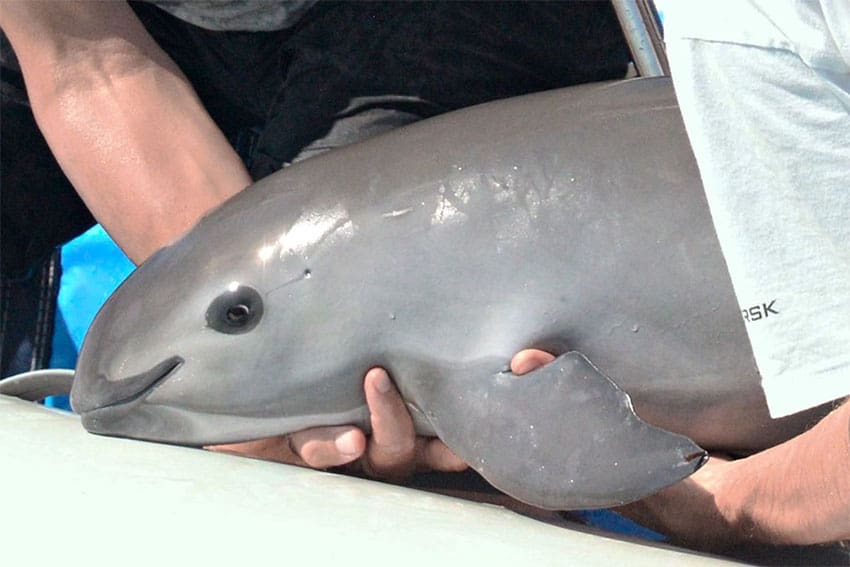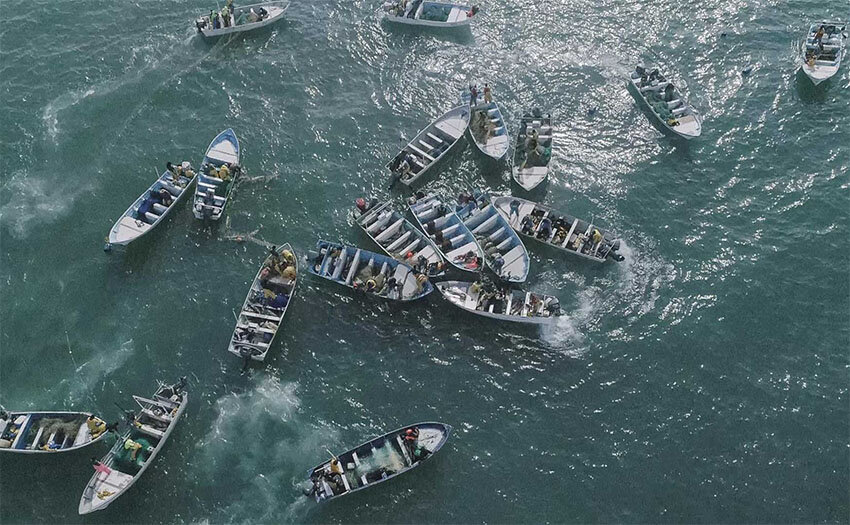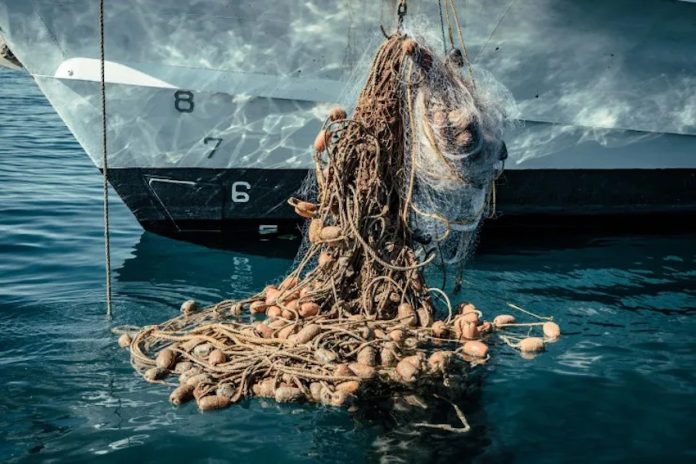The U.S. Fish and Wildlife Service (USFWS) announced on Friday its conclusion that Mexico is not adequately protecting the endangered vaquita porpoise from the consequences of illegal totoaba fishing in Mexican waters.
The USFWS, which is part of the Department of the Interior, said in a statement that the Biden administration must now decide whether to take action against Mexico within the next 60 days. Potential action could include a ban on all U.S. imports of wildlife products from Mexico, forecast to cost the nation up to US $1.5 billion in lost trade.

Mexico is party to the Convention of International Trade in Endangered Species of Wild Fauna and Flora (CITES), which prohibits the international trade of the endangered totoaba fish. The vaquita, the world’s smallest porpoise, often becomes entangled and killed in nets used to catch the totoaba.
Illegal fishing of the totoaba, valued in Chinese medicine for its swim bladder, remains a problem in Mexico, and CITES has argued that the Mexican government has not done enough to prevent continued fishing in its waters. Since 2014, when conservation groups first petitioned to ban imports from Mexico under the Pelly Amendment to the U.S. law known as the Fishermen’s Protective Act, vaquita numbers have declined from 100 to reportedly fewer than 10.
The vaquita marina’s only known habitat worldwide is in Mexico’s Gulf of California.
In March, CITES sanctioned Mexico for its failure to protect the vaquita. The sanction would have blocked Mexico’s export of wildlife products to the convention’s 184 member countries, but CITES lifted the suspension in April after Mexico submitted a new plan.
Under the Pelly Amendment, the U.S. president can embargo wildlife products from a country if the USFWS finds that it is “diminishing the effectiveness” of any wildlife treaty.

“Mexico has failed the vaquita and ignored its obligations under international law, so this step is crucial,” Sarah Uhlmenn, the international program director at the Center for Biological Diversity, said. “No one relishes painful trade sanctions, but without strong, immediate pressure from the international community, there’s a good chance we’ll lose this shy little porpoise forever.”
DJ Schubert, a wildlife biologist with the Animal Welfare Institute, believes that the vaquita can recover if Mexico “substantively escalates its efforts to fully implement and enforce its laws.”
The Animal Welfare Institute (AWI) said in a press release on Friday that Mexico has failed to “stem the illegal harvest and commercial export of totoaba.”
“Scientists have confirmed that the vaquita can recover — but only if gillnets are permanently removed from its habitat in the Upper Gulf,” the organization said in its release.
If Biden decides to take action against Mexico, it would not be the first time the U.S. has imposed such sanctions: in 1994, the Clinton administration banned wildlife imports from Taiwan following a USFWS conclusion that the illegal trade of rhino and tiger parts was violating CITES.
The ban encouraged the Taiwanese government to more tightly enforce its wildlife protection laws, shutting down the illegal trade, the AWI said.
Mexico News Daily
